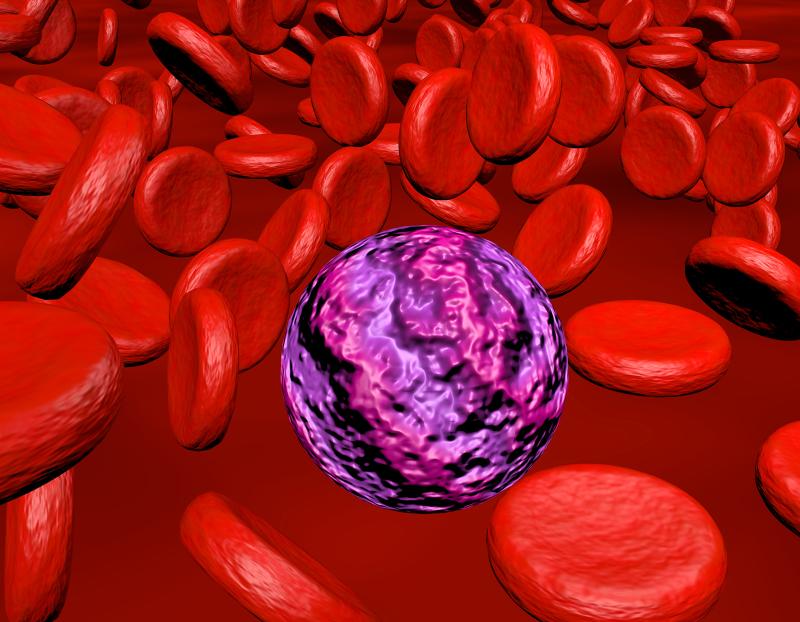
Chronic myeloid leukaemia (CML) patients treated with second- or third-generation tyrosine kinase inhibitors (TKI) face considerable long-term cardiovascular (CV) mortality risks, a new study has found.
Researchers enrolled 656 consecutive CML patients (mean age at diagnosis, 53 years; 56.7 percent male) who were treated with nilotinib, dasatinib, bosutinib or ponatinib. Study outcomes included overall survival and CV mortality-free survival. Information on the use of primary or secondary antithrombotic prophylaxis was also recorded.
Nilotinib was administered in 287 patients, while 225, 84 and 60 received dasatinib, ponatinib and bosutinib, respectively. Overall, 37 deaths were reported, with a 15-year overall survival rate of 83.3±3.6 percent. Twelve of these deaths were attributed by physicians to CV complications. The resulting CV mortality-free survival rate was 93±2.8 percent.
Multivariate analysis found that age was a significant risk factor for CV-related mortality (p=0.005), such that those aged ≥65 years had significantly lower CV mortality-free survival rates than their younger counterparts (72.1±13.1 percent vs 95.8±2.7 percent; p<0.001). A positive history of arterial occlusive events was also a significant risk factor (p=0.04).
CV diseases accounted for 16.5 percent and 5 percent of percentage of years of life lost in male and female participants, respectively. Leukaemia progression was the biggest contributing factor in both sexes (57.4 percent and 60 percent, respectively).
“Our data confirm that [ischaemic heart disease] remains an important potential mortal complication in CML patients treated with second- and third-generation TKIs,” said researchers. “These findings emphasize the need to personalize prevention strategies based on CV risk factors, in particular in those patients with a previous history of CV disease.”